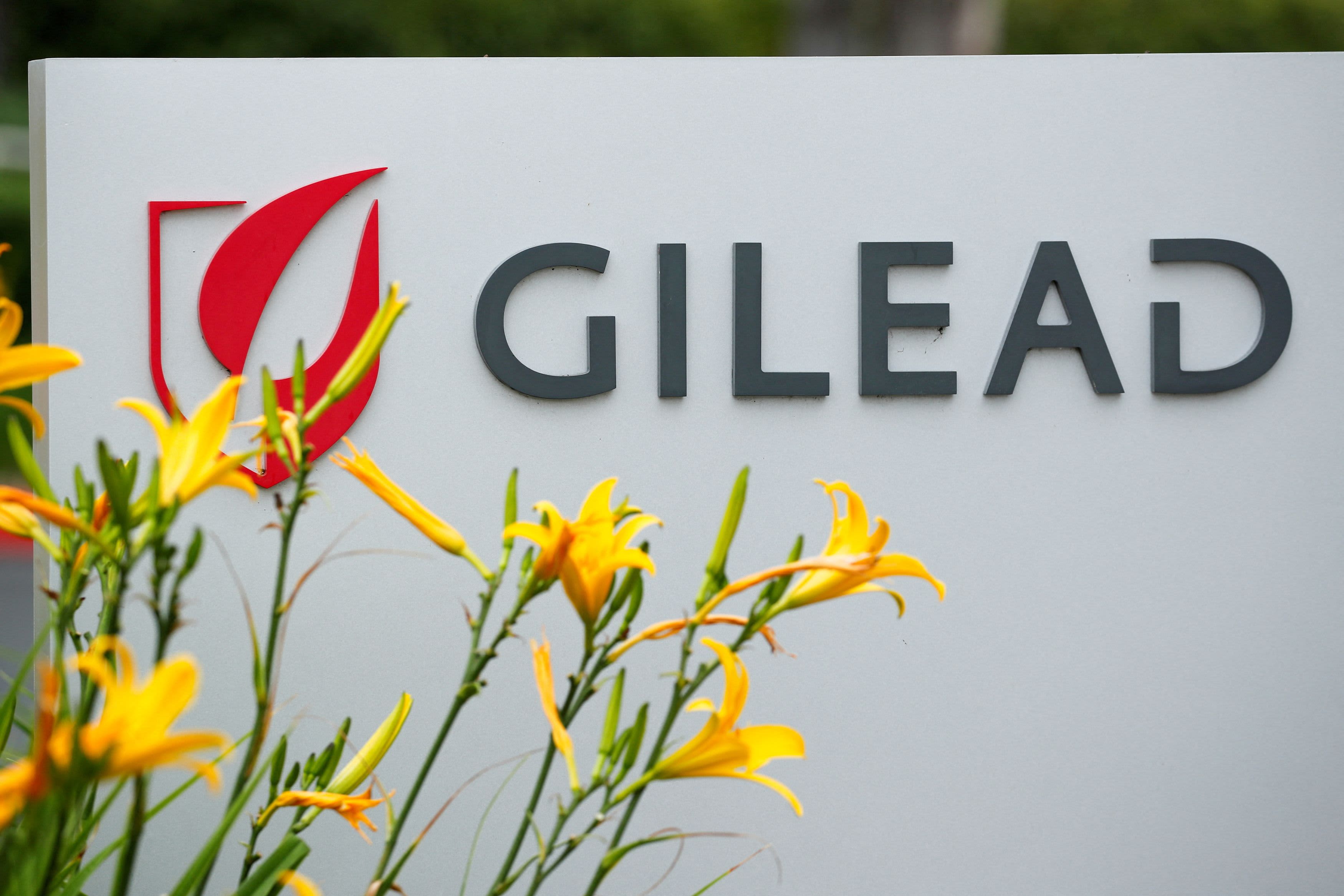
Gilead‘s experimental twice-yearly medicine to prevent HIV was 100% effective in a late-stage trial, the company said Thursday.
None of the roughly 2,000 women in the trial who received the lenacapavir shot had contracted HIV by an interim analysis, prompting the independent data monitoring committee to recommend Gilead unblind the Phase 3 trial and offer the treatment to everyone in the study. Other participants had received standard daily pills.
The results bring Gilead one step closer to introducing a new form of pre-exposure prophylaxis, or PrEP, and broadening its HIV business. Shares of the company rose about 7% on Thursday.
“What the world needs is people to have more PrEP options so they can make the choice of the option that’s going to work best for them,” said Jared Baeten, Gilead’s vice president of clinical development for HIV.
Before seeking approval from the Food and Drug Administration, Gilead will first need to replicate these results. The company expects to share data later this year or early next year from an ongoing Phase 3 study of men who have sex with men. If those results are positive, the company could bring lenacapavir for PrEP to market as soon as late 2025.
More than a decade ago, Gilead’s Truvada became the first approved PrEP for people without HIV who are at high risk of acquiring it. Daily pills dominate the market, but drugmakers are now focusing on developing longer-acting shots.
PrEP slashes the risk of getting HIV from sex by 99%, and from injected drug use by 74% when taken correctly. Yet only a little more than one-third of people in the U.S. who could benefit from PrEP take it, according to data from the Centers for Disease Control and Prevention.
Health policymakers and advocates hope longer-acting options could reach people who can’t or don’t want to take a daily pill and better prevent the spread of a virus that caused about 1 million new infections globally in 2022.
“It’s really important to have more options than daily pills because the orals aren’t going to get us to the end of the epidemic,” said Bruce Richman, founding executive director of the nonprofit Prevention Access Campaign. “We need to make sure that people have options to fit with their lifestyles.”
The FDA approved the first injectable PrEP in 2021. That drug, Apretude, is given every other month, or six times a year, by a medical professional. About 11,000 people take Apretude, according to its manufacturer, ViiV.
Tim Oliver, a 28-year-old public health worker in New York, said he doesn’t mind going to the doctor for his Apretude shots. But he added that some of his friends have told him they’d rather keep taking a daily pill than get an injection. A longer-acting option could be more attractive to patients.
RBC Capital Markets analyst Brian Abrahams expects Gilead’s shot will significantly increase the number of people interested in preventive HIV medicine. He estimates peak sales of nearly $2 billion. Gilead’s newer PrEP pill, Descovy, notched about $2 billion of revenue last year.
Activists have urged Gilead to ensure that people in countries where low- and middle-incomes predominate can get access to lenacapavir. The company has long faced criticism over the price of its HIV medicines. Descovy usage carries a list price of $26,000 a year.
In its statement disclosing the lenacapavir trial results Thursday, Gilead said it plans to share an update on how it plans to address access in such countries where people suffer high incidence rates of HIV.
— CNBC’s Leanne Miller contributed to this report.
This article was originally published on CNBC

